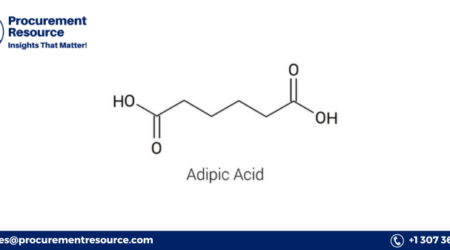What Are Home Purchase Loans and How Do They Work?
Buying a home is one of the most significant financial decisions most people will make in their lifetime. Understanding home purchase loans and how they work is crucial to making an informed decision. This comprehensive guide will explain everything you need to know about Home Purchase Loans, from the basics to the intricate details, helping you navigate the process with confidence.
Understanding Home Purchase Loans
Home purchase loans, commonly known as mortgages, are loans specifically designed to help individuals buy residential properties. These loans are secured by the property being purchased, which means if the borrower fails to repay the loan, the lender can take possession of the home through foreclosure.
Types of Home Purchase Loans
There are several types of home purchase loans available, each catering to different financial situations and preferences. The most common types include:
Conventional Loans: These are not insured or guaranteed by the federal government and typically require a higher credit score and a larger down payment.
FHA Loans: Insured by the Federal Housing Administration, these loans are designed for low-to-moderate-income borrowers and require a lower minimum down payment and credit score.
VA Loans: Guaranteed by the Department of Veterans Affairs, these loans are available to eligible veterans and their families, offering benefits such as no down payment and lower interest rates.
USDA Loans: Backed by the U.S. Department of Agriculture, these loans are intended for rural homebuyers and offer benefits like no down payment and reduced mortgage insurance premiums.
Jumbo Loans: These are for home purchases that exceed the conforming loan limits set by the Federal Housing Finance Agency. They typically require a higher credit score and a larger down payment.
The Home Purchase Loan Process
Understanding the home purchase loan process can help buyers prepare and navigate each step effectively.
1. Pre-Approval
Before starting the home search, obtaining a loan pre-approval is advisable. Pre-approval involves a lender reviewing the borrower’s financial information to determine how much they can borrow. This step provides an estimate of the loan amount, helping buyers set realistic expectations and demonstrate their seriousness to sellers.
2. Finding the Right Property
Once pre-approved, buyers can begin the house-hunting process. It’s essential to consider factors such as location, property condition, and price range. Working with a real estate agent can streamline this process and provide valuable insights.
3. Making an Offer
After finding the ideal property, the next step is making an offer. This involves submitting a purchase agreement to the seller, which outlines the proposed purchase price and terms. The seller can accept, reject, or counter the offer. Once both parties agree, the purchase agreement becomes a legally binding contract.
4. Loan Application
With a signed purchase agreement, the buyer can formally apply for a home purchase loan. This involves submitting detailed financial documents, such as income statements, tax returns, and bank statements. The lender will assess the borrower’s creditworthiness and the property’s value.
5. Underwriting
During the underwriting process, the lender evaluates the loan application to ensure it meets all requirements. This includes verifying the borrower’s financial information, appraising the property, and assessing the overall risk. The underwriter may request additional documentation or clarification during this stage.
6. Loan Approval and Closing
Once the underwriting process is complete and the loan is approved, the final step is closing. This involves signing the necessary paperwork, transferring funds, and officially taking ownership of the property. The closing process typically includes:
Key Factors Affecting Home Purchase Loans
Several factors can influence the terms and approval of a home purchase loan. Understanding these factors can help buyers make informed decisions and improve their chances of securing favorable loan terms.
Credit Score
A credit score is a numerical representation of a borrower’s creditworthiness. Lenders use credit scores to assess the risk of lending money. Higher credit scores typically result in better loan terms, such as lower interest rates and down payment requirements.
Down Payment
The down payment is the upfront amount paid by the buyer toward the purchase price of the home. Larger down payments can reduce the loan amount and potentially result in lower interest rates and monthly payments. Different loan types have varying down payment requirements.
Debt-to-Income Ratio
The debt-to-income (DTI) ratio is a measure of a borrower’s monthly debt payments relative to their monthly income. Lenders use this ratio to evaluate the borrower’s ability to manage monthly payments. A lower DTI ratio indicates a stronger financial position and may improve loan approval chances.
Interest Rates
Interest rates play a crucial role in determining the overall cost of a home purchase loan. Rates can vary based on market conditions, the borrower’s credit score, and the loan type. Comparing rates from different lenders can help buyers secure the most favorable terms.
Loan Term
The loan term refers to the length of time over which the loan will be repaid. Common loan terms include 15, 20, and 30 years. Shorter loan terms generally have higher monthly payments but lower overall interest costs, while longer terms offer lower monthly payments but higher total interest.
Best Home Loan Company
Mortgage Skyhill is a leading home loan company renowned for offering tailored mortgage solutions to meet the diverse needs of homebuyers. With a commitment to excellent customer service and competitive interest rates, Mortgage Skyhill ensures a smooth and efficient loan process. Whether you’re a first-time homebuyer or looking to refinance, Mortgage Skyhill provides expert guidance and flexible options to help you secure the home of your dreams. Their team of experienced professionals works diligently to make homeownership accessible and stress-free.
Conclusion
Understanding home purchase loans and how they work is essential for making informed decisions when buying a home. By familiarizing yourself with the different loan types, the loan process, and key factors affecting loan approval, you can confidently navigate the home buying journey. Remember to improve your credit score, save for a larger down payment, and compare offers from multiple lenders to secure the best possible loan terms.










Leave a Reply